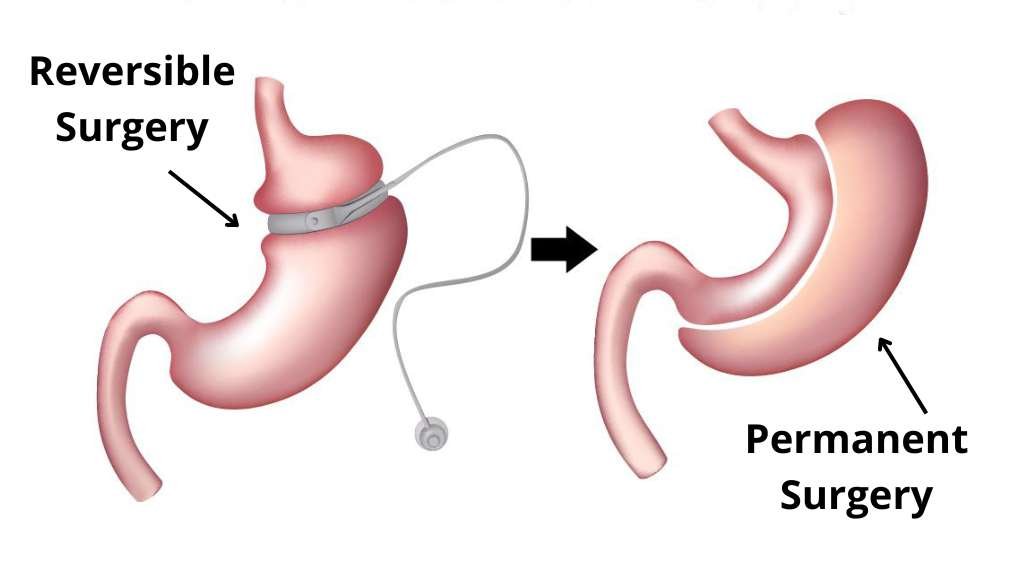Obesity has become a global health concern, affecting millions of individuals worldwide. For those struggling with severe obesity, traditional weight loss methods may not always provide the desired results. In such cases, bariatric surgery in Turkey emerges as a life-changing weight loss solution. This essay explores the world of bariatric surgery, shedding light on its procedures, benefits, risks, and considerations for individuals seeking effective and lasting weight loss.
Understanding Bariatric Surgery
What is Bariatric Surgery?
Bariatric surgery is a series of surgical procedures designed to help individuals with obesity achieve significant weight loss by altering the digestive system. The primary aim is to limit food intake and nutrient absorption, resulting in substantial weight reduction.
Types of Bariatric Surgery Procedures
There are several types of bariatric surgery procedures, each with its unique approach to weight loss. Some common procedures include:
Gastric Bypass
Gastric Bypass involves creating a small pouch at the top of the stomach and rerouting the small intestine to bypass a portion of the digestive tract. This restricts the amount of food the stomach can hold and reduces nutrient absorption.
Sleeve Gastrectomy
Sleeve Gastrectomy involves removing a large portion of the stomach, leaving behind a smaller, sleeve-shaped stomach. This procedure reduces the stomach’s size and alters hunger-regulating hormones, promoting weight loss.
Adjustable Gastric Banding
In Adjustable Gastric Banding, an inflatable band is placed around the upper part of the stomach, creating a small pouch to restrict food intake. The band can be adjusted to control the rate of weight loss.
The Need for Bariatric Surgery
The Rising Prevalence of Obesity
Obesity has reached epidemic proportions globally, leading to a host of health problems, including heart disease, diabetes, and joint issues. Bariatric surgery offers a viable solution for individuals with severe obesity to improve their health and well-being.
When is Bariatric Surgery Recommended?
Bariatric surgery is typically recommended for individuals with a body mass index (BMI) above 40 or a BMI above 35 with obesity-related health conditions. It is considered when lifestyle changes and traditional weight loss methods have not been effective.
Preparing for Bariatric Surgery
Medical Evaluation and Screening
Before undergoing bariatric surgery, candidates undergo a thorough medical evaluation and screening to ensure they are suitable candidates for the procedure. The medical team also assesses the patient’s overall health and addresses any pre-existing medical conditions.
Lifestyle Changes and Diet Preparations
Preparing for bariatric surgery involves making significant lifestyle changes, including dietary adjustments, regular exercise, and quitting harmful habits like smoking and excessive alcohol consumption.
The Bariatric Surgery Procedure
Step-by-step Explanation
The actual bariatric surgery process involves several steps, including anesthesia administration, the surgical procedure itself, and post-operative care. The surgery is typically performed laparoscopically, resulting in smaller incisions, reduced scarring, and faster recovery times.
Potential Risks and Complications
Like any major surgery, bariatric surgery carries some risks. Patients must be fully informed about potential complications, such as infection, blood clots, and leakage at the surgical site, to make an educated decision.
Post-Operative Care and Recovery
Hospital Stay and Monitoring
After bariatric surgery, patients stay in the hospital for a few days for close monitoring and to ensure a smooth recovery. The medical team provides detailed post-operative care instructions, including dietary guidelines and physical activity recommendations.
Benefits and Long-term Effects of Bariatric Surgery
Weight Loss and Health Improvements
Bariatric surgery has been proven to result in significant weight loss, with many patients experiencing substantial reductions in their BMI and improved overall health.
Impact on Co-morbidities
The procedure has been found to improve or resolve obesity-related conditions such as diabetes, high blood pressure, and sleep apnea, offering patients a chance at a healthier and more active life.
Dietary and Lifestyle Changes after Bariatric Surgery
Creating a Sustainable Diet Plan
Adopting a balanced and sustainable diet is essential after bariatric surgery. Patients learn to make healthier food choices and develop long-term eating habits.
Incorporating Exercise and Physical Activity
Regular exercise is crucial for maintaining weight loss and enhancing physical fitness. Patients are encouraged to engage in activities that suit their abilities and preferences.
Addressing Concerns and Misconceptions
Common Myths about Bariatric Surgery
There are several misconceptions about bariatric surgery that need to be debunked to help individuals make well-informed decisions about their weight loss journey.
Handling Emotional and Mental Health Aspects
Obesity often has emotional and psychological aspects that need attention. Support groups and counseling play a significant role in addressing these issues post-surgery.
Success Stories and Patient Experiences
Real-life Testimonials
Hearing about successful weight loss journeys from individuals who have undergone bariatric surgery can be a powerful source of inspiration and motivation.
Inspirational Journeys of Transformation
Many patients share their transformative experiences, not only in terms of physical changes but also regarding newfound confidence and improved quality of life.
Choosing the Right Surgeon and Hospital
Research and Selection Process
Selecting a qualified and experienced surgeon and reputable hospital for bariatric surgery is paramount for a safe and successful procedure. Patients considering bariatric surgery should conduct thorough research and consider the following factors:
Surgeon’s Credentials
Look for a surgeon who is board-certified in bariatric surgery and has extensive experience in performing the specific procedure of interest.
Hospital Accreditation
Ensure that the hospital where the surgery will take place is accredited and has a track record of excellent patient outcomes.
Patient Reviews and Testimonials
Read reviews and testimonials from previous patients to gain insights into their experiences and satisfaction with the surgeon and hospital.
Post-Operative Care and Support
Inquire about the hospital’s post-operative care and support services, as these are crucial for a smooth recovery and long-term success.
Alternatives to Bariatric Surgery
Other Weight Loss Procedures
While bariatric surgery has proven to be effective for many individuals, it may not be the right choice for everyone. Some individuals may prefer non-surgical options or explore other weight loss procedures. Here are a few alternatives:
Gastric Balloon
The Gastric Balloon procedure involves inserting a deflated balloon into the stomach and inflating it to occupy space. This reduces the stomach’s capacity, leading to early satiety and reduced food intake.
Gastric Sleeve Surgery
Gastric Sleeve Surgery, also known as Sleeve Gastrectomy, involves removing a portion of the stomach to create a smaller sleeve-shaped stomach. This restricts the amount of food the stomach can hold, promoting weight loss.
Laparoscopic Adjustable Gastric Banding
Laparoscopic Adjustable Gastric Banding involves placing a band around the upper part of the stomach to create a smaller pouch. The band can be adjusted as needed to control food intake.
The Cost of Bariatric Surgery
Insurance Coverage and Financing Options
The cost of bariatric surgery can vary depending on factors such as the type of procedure, hospital fees, and surgeon’s expertise. Patients should check with their insurance providers regarding coverage for bariatric surgeries, as some policies may cover a portion or the entire cost.
Assessing the Long-term Investment
While the initial cost of bariatric surgery might seem significant, it is essential to consider the long-term investment. The potential savings on obesity-related healthcare expenses and the improvement in overall quality of life make it a worthwhile consideration for those struggling with severe obesity.
Potential Risks and Complications
Addressing Concerns and Precautions
Bariatric surgery is generally considered safe, but like any surgical procedure, it carries some inherent risks. Patients must thoroughly discuss potential risks and complications with their healthcare team and follow pre- and post-operative guidelines to minimize these risks.
Preparing for Unexpected Outcomes
While most bariatric surgeries are successful, it is essential for patients to be mentally prepared for unexpected outcomes or challenges during the recovery period. Having a support system and seeking guidance from healthcare professionals can prove invaluable during this time.
Bariatric surgery in Antalya offers a life-changing opportunity for individuals struggling with severe obesity to achieve significant and sustainable weight loss. With a range of surgical procedures available, patients can choose the one that best suits their needs and preferences. However, it is crucial to thoroughly research and consider all aspects, including risks, benefits, and alternatives, before making a decision.
Bariatric surgery is not a quick fix but rather a tool to help individuals adopt healthier lifestyles and improve their overall well-being. Success depends not only on the surgery itself but also on the commitment to lifelong dietary and lifestyle changes.
For those considering bariatric surgery in Antalya, choosing a reputable surgeon and hospital is essential for a safe and successful procedure. With the right medical team and proper post-operative care, patients can embark on a transformative journey towards a healthier and more fulfilling life.
FAQs
Is Bariatric Surgery in Antalya safe?
Yes, bariatric surgery in Antalya is generally safe when performed by qualified and experienced surgeons in accredited hospitals. However, like any surgery, it carries some risks that should be discussed with the medical team.
How long does the recovery period typically last after bariatric surgery?
The recovery period varies for each individual and depends on the type of bariatric surgery performed. Most patients can resume normal activities within 4 to 6 weeks after the surgery.
Will I need to take supplements after bariatric surgery?
Yes, following bariatric surgery, patients will need to take vitamin and mineral supplements to ensure adequate nutrition.
Can bariatric surgery be reversed?
Some types of bariatric surgeries, such as gastric banding, can be reversed. However, procedures like gastric bypass and sleeve gastrectomy are generally considered irreversible.
What are the qualifications of bariatric surgeons in Antalya?
Bariatric surgeons in Antalya are typically board-certified in bariatric surgery and have extensive experience in performing these procedures. It is essential to research and select a surgeon with a proven track record of successful outcomes.













